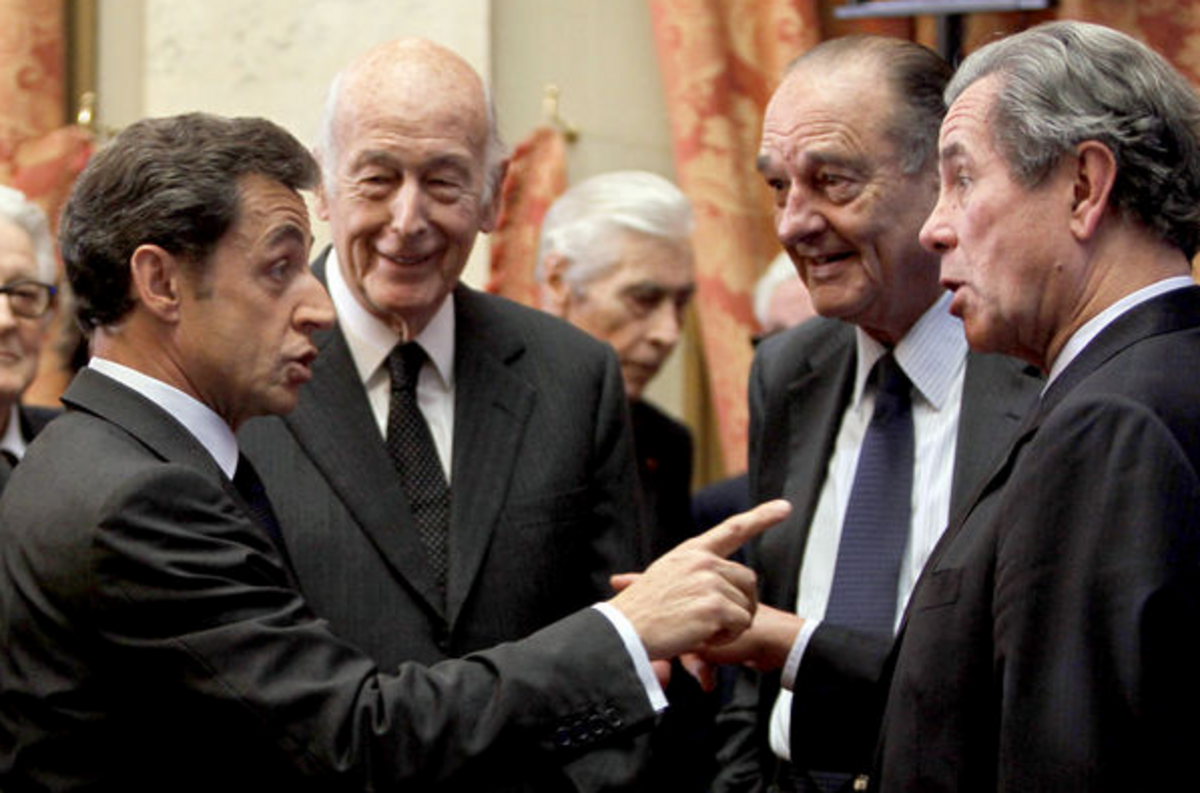The right-wing UMP opposition party has been forced to launch a national appeal to save it from potential bankruptcy after the 2012 election campaign accounts of former president Nicolas Sarkozy were thrown out by France’s highest constitutional court the Conseil constitutionnel. It is the first time a candidate in the second round of a French presidential election has had their accounts rejected.
The court, of which Sarkozy was an automatic member as a former president, ruled that the unsuccessful campaign had exceeded its 22.5 million euro spending limit by 466,118 euros. As a result Sarkozy's campaign will not get 11 million euros in state funding that it had been due. The money for the campaign had been borrowed by Sarkozy but was guaranteed by his party the UMP, on the expectation that it would be reimbursed by the state.

After its decision on Thursday an angry Sarkozy immediately resigned from the court, to enable him to “speak freely” on the issue. Writing on his Facebook page on Friday the former president said the “unprecedented” decision by the court had put at risk the political party – the UMP – that had to provide the “much needed alternative” to socialism.
Referring to his election defeat to François Hollande last year Sarkozy wrote: “Following the decision of the Conseil Constitutionnel, France's main opposition party which managed to attract nearly one in two French voters a year ago will receive no public reimbursement.” He added: “For an overspend – which we dispute – of 400,000 euros or 2.1% of the campaign accounts a sanction of 100% or 11 million euros has been applied. Every political movement has been reimbursed by the state except the UMP.”
In its judgement the court also ruled that the state should not have paid the bill for a meeting held by the president at Toulon in southern France last December, because of the political nature of the event. In effect this means that the funding of this gathering was illegal. However, the court chose not to consider other visits and meetings held by President Sarkozy in late 2011 and early 2012 as campaign events, unlike the election funding scrutiny committee the Commission des comptes de campagne et des financements politiques (CNCCFP) that had originally rejected the accounts. In its judgement the court stated that the law on political funding “does not have the aim or the effect of limiting the visits of the President of the Republic, nor his involvement in public meetings carried out in the exercise of his function”.
As a result of the ruling the former president will also now have to write a personal cheque to the state for 153,000 euros to reimburse the advance that the state had given him, and another for around 400,000 euros to cover the overspend in his campaign.
The decision by the Conseil Constitutionnel caused anger on the Right, with supporters of the former president claiming that it was part of an orchestrated witch-hunt against him. His campaign treasurer for 2012 Philippe Briand said: “For an overspend of 2.1% over the authorised limit, I feel this decision is profoundly unjust.” He referred to Sarkozy's implication in the Bettencourt affair, the claimed Libyan funding of his 2007 campaign and the Tapie affair. “That's a lot to heap on a man!” he said. Though he refused to describe it a “political” judgement, Briand did however claim that the court's “incomprehensible” decision was in contrast to the handling of the accounts of François Hollande, whom he said had been “treated differently”. He added: “It will result in removing the UMP's means of existing, of expressing itself. No one should complain later that there's been a rise in extreme politics in this country!”
Sarkozy's former interior minister and close friend and ally Brice Hortefeux said he was “sickened” by the verdict. “It's a decision ...that shows a desire to suffocate a man. How can one not ask questions about this institution after the recent nomination of three [members] by the [socialist] government,” Hortefeux told Le Monde. However, the court is in fact presided over by Jean-Louis Debré, a close ally of former centre-right president Jacques Chirac, who also has centrist MP Jacques Barrot and former UMP senator Hubert Haenel alongside him.
Speaking anonymously to Mediapart, a key member of the Sarkozy campaign in 2012 said angrily: “There are those in the court who campaigned for candidates who took far fewer precautions than Sarkozy!” In 1995, as Mediapart has reported, the presidential candidates Édouard Balladur and Jacques Chirac both significantly exceeded their campaign spending limits but benefited from considerable indulgence from the court at that time.
The Right's attacks on the Conseil constitutionnel quickly brought a riposte from the government. President Hollande, who was on a visit to Tunisia, said at a press conference: “The Conseil constitutionnel must be respected, fully respected, entirely respected, and no one can have suspicions or raise doubts about this institution without raising doubts about every institution.”
Justice minister Christiane Taubira also joined in the debate, stating: “However disagreeable a decision might be, accepting it is a matter of civic spirit and a sense of responsibility, and requires an attempt at dignity in the name of the public interest.”
There was also an attack on the criticism levelled at the judgement by UMP MP Bernard Debré, the brother of the court's president Jean-Louis Debré, who said its judges were “totally impartial and independent”. He added: “You can't say 'it's great' when they find in our favour and then when they find against you say 'they're idiots'...if you start to criticise the Conseil constitutionnel then there's no more democracy.”
----------------------------------
English version by Michael Streeter


